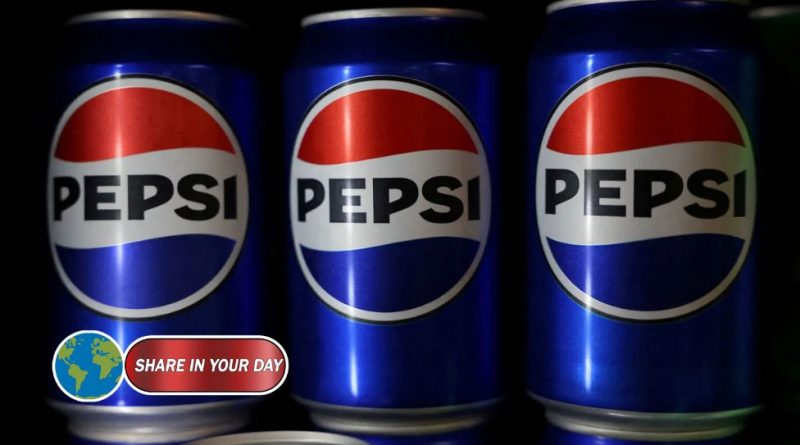PepsiCo Beats Q3 Estimates as International Sales Offset North American Weakness
October 9, 2025
PepsiCo Earnings Surpass Expectations as International Growth Drives Performance

PepsiCo reported better-than-expected earnings and revenue for its fiscal third quarter on Thursday, with international markets providing a crucial lift amid ongoing challenges in North America. While volumes at home continued to decline, global momentum helped the food and beverage giant maintain its full-year forecast and reassured investors about its strategic direction.
Shares in PepsiCo rose nearly 2% in premarket trading following the announcement.
Q3 Snapshot: Above Expectations
According to analyst estimates compiled by LSEG, PepsiCo’s financial performance came in ahead of expectations on both earnings and revenue:
- Adjusted earnings per share: $2.29 (vs. $2.26 expected)
- Revenue: $23.94 billion (vs. $23.83 billion expected)
However, net income attributable to the company dropped to $2.6 billion, or $1.90 per share, compared to $2.93 billion, or $2.13 per share, in the same quarter last year. The decline was attributed largely to restructuring and impairment charges.
Excluding those one-time costs, the company delivered a strong adjusted earnings performance, highlighting the resilience of its international business and disciplined cost control.
Global Gains Offset Domestic Struggles
PepsiCo’s global sales rose by 2.6%, driven primarily by markets outside the U.S. On an organic basis—excluding acquisitions, divestitures, and currency fluctuations—revenue was up 1.3%.
Despite topline growth, total volume across the company’s food and beverage portfolio fell by 1%, signaling persistent softness in consumer demand, especially in North America.
PepsiCo executives acknowledged these challenges in prepared remarks, noting:
“We expect our North America business to deliver improved growth and profitability trends as we aggressively reduce costs, accelerate innovation, and sharpen our price-pack architecture.”
North America: A Continued Drag
The North American market remains a focal point for improvement. Volume for Pepsi Foods North America, which includes brands like Doritos, Quaker Oats, and Pearl Milling, dropped 4% in the quarter. The company attributed the decline to changing consumer behavior and inflation-driven pricing sensitivity.
To address this, Pepsi is expanding its range of “permissible” snacks — healthier alternatives that respond to the growing demand for clean-label and protein-rich options. Recent moves include:
- Launching Doritos Protein, a high-protein snack line
- Expanding offerings like Stacy’s Pita Chips and Quaker Rice Cakes
- Introducing Lay’s packaging redesigns to emphasize the removal of artificial colors and flavors
- Preparing the launch of Doritos and Cheetos “NKD”, a no-synthetic dye/flavor snack line
These initiatives follow both consumer trends and regulatory pressure, with U.S. government scrutiny over food additives intensifying under the Trump administration.
Beverages: A Mixed but Improving Picture
Pepsi’s North American beverage unit saw a 3% drop in volume, though CEO Ramon Laguarta said the division is showing “improved momentum.” Pepsi-branded soda saw increases in both volume and revenue for the quarter.
A bright spot was Poppi, a prebiotic soda brand PepsiCo recently acquired. Poppi’s retail sales are up over 50% year-to-date, according to company executives — an encouraging sign as the firm seeks relevance among health-conscious Gen Z consumers.
In contrast, Pepsi exited its investment in Rockstar Energy in the U.S. and Canada last month, selling the rights to rival Celsius Holdings, though it retains an 11% equity stake in the booming energy drink brand.
Stable Outlook Amid Transition
Despite mixed performance across regions, PepsiCo reiterated its full-year forecast. The company expects:
- Earnings per share (on a core, constant currency basis): Roughly flat year-over-year
- Organic revenue growth: Low single-digit percentage
These projections reflect management’s confidence in ongoing cost-cutting and innovation strategies.
Adding to the day’s headlines, PepsiCo announced a major leadership change. Longtime Chief Financial Officer Jamie Caulfield will retire, with Walmart U.S. CFO Steve Schmitt set to replace him effective November 10.
The transition comes at a pivotal moment as PepsiCo continues to reshape its North American strategy and deepen its global footprint.
Investor Takeaways
While North American softness remains a concern, PepsiCo’s diversified portfolio and strong international operations have allowed the company to outperform Wall Street’s expectations this quarter. The stock’s positive movement in premarket trading reflects renewed investor confidence in the company’s roadmap.
With fresh product lines on the horizon, a new CFO in place, and a reaffirmed outlook, PepsiCo is signaling that its transformation efforts are far from over.
📈 Quick Summary
- EPS (adjusted): $2.29 vs $2.26 expected
- Revenue: $23.94B vs $23.83B expected
- Volume Decline: -1% globally, -4% in U.S. snacks, -3% in U.S. beverages
- Poppi Sales: +50% YTD
- New CFO: Steve Schmitt (ex-Walmart), effective Nov. 10
- Outlook: Organic revenue growth in low single digits, EPS flat YoY




